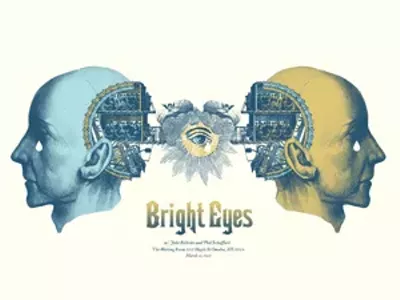
Audio By Carbonatix
[
{
"name": "GPT - Leaderboard - Inline - Content",
"component": "35519556",
"insertPoint": "5th",
"startingPoint": "3",
"requiredCountToDisplay": "3",
"maxInsertions": 100,
"adList": [
{
"adPreset": "LeaderboardInline"
}
]
}
]
It's surprising when a film forces you to reconsider your assumptions about the modern Russian legal system. So ingrained are Cold War attitudes and myths that the knee-jerk response is to ask, "Russia has a functioning legal system?"
The truth is, after watching Nikita Mikhalkov's Muscovite version of Twelve Angry Men, the one glaring difference that emerges between their legal system and ours is that they don't have the death penalty. While this makes for enlightened social policy, it sucks for drama.
Much like writer Reginald Rose's 1955 liberal, kitchen-sink drama, 12 uses a seemingly open-and-shut case — a Chechnyan teen accused of murdering his adoptive Russian father — as a window into the cultural mind-sets and mores of the 12 men who must decide his guilt or innocence. But, unlike the original, the accused's life is no longer on the line. While life imprisonment's no vacation (especially, one imagines, in a Russian prison), without the specter of death hanging over the boy's head, the stakes aren't as high or urgent.
As in the original, the jurors are unwound by a single vote of not guilty, forcing each to make his case and reveal more and more of his character. There's the high-strung Harvard-educated TV producer, a transit worker, an engineer and family man, an elderly Holocaust survivor, a touring comic actor, a surgeon, a psychopathic cabbie and the unflappably calm jury foreman (played by director Mikhalkov), who emerges as a surprising inquisitor. All the actors are great, infusing the movie with a kinetic and volatile rhythm. Yeah, it's overwrought and highly schematic, but for long stretches you can't take your eyes off the damn thing.
Not surprisingly, 12 is not a direct translation of Twelve Angry Men but rather a reworking of the basic storyline to address contemporary Russian themes and cultural mindsets. Gone are the humanist arguments against bigotry, apathy and blind patriotism. Instead, we get a heated mix of ethnic divisions, corruption, modern social friction and the influences of the West. Even the constricted, claustrophobic deliberation room of director Sidney Lumet's original has been replaced with a spacious school gymnasium. Yes, it's still got plenty of shouting, spitting and chew-the-scenery-vomit-it-out-and-force-it-down-the-other-guy's-throat confrontations, but Mikhalkov's jurors occasionally wander away from the confessional diatribes, pulling focus away from the skirmishes.
Similarly, the Slavic version lacks the tightly wound structure of the original, providing us with numerous flashbacks to the boy's disturbingly violent youth. While this puts a more solid face on the accused (the original never introduces us to the Hispanic youth on trial), it dilutes the dramatic buildup of the arguments. Each anti-Chechnyan, anti-Semitic and anti-immigrant sentiment revealed feels carefully plotted rather than spontaneously erupted. More to its detriment, 12 is a much longer film — nearly twice the length of the 90-minute original.
While there's no denying that Lumet's meat-and-potatoes tribute to rock-solid American integrity and our system of justice was hokey as hell, Twelve Angry Men also brought with it an infectious chest-thumping spirit. Watching it today, it's amazing how effective the cast is at reeling you in. Mikhalkov's movie is more thoughtful, less visceral. Even though his actors generate incredible sparks, the heat never gets under your skin. Where 12 finally succeeds, however, is in its rousing finale, delivering an emotionally charged argument that even the most selfish and intolerant of men can find their way to wisdom and mercy. And then, as a final coda, Mikhalkov tempers that optimism with an ironic statement about the deep corruption that is part and parcel of Vladimir Putin's regime. How Russian.
On Sunday, April 26, Dr. Laura Kline, Senior Lecturer at Wayne State University — she specializes in Contemporary Russian literature and culture — will introduce 12 in the theater at 1:30 p.m. Free with film admission.
Jeff Meyers writes about film for Metro Times. Send comments to letters@metrotimes.com.





